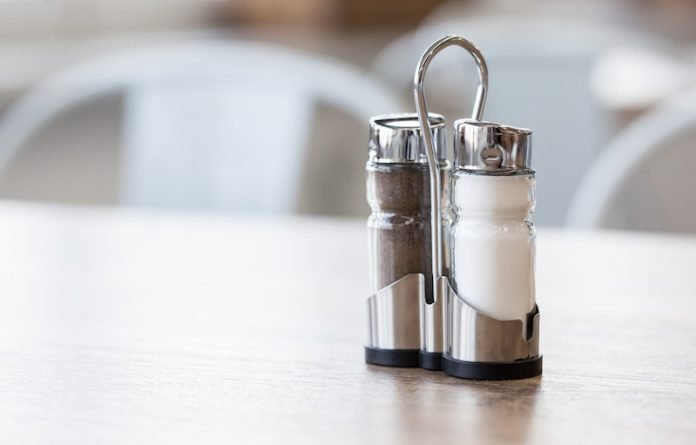
In a study from the University of Modena, scientists found reducing sodium intake by any amount can lower blood pressure over the long term – and may benefit everyone, including people with normal blood pressure.
The link between consuming less-salty foods and lower blood pressure is well established.
In the study, the researchers wanted to understand the exact nature of the link over a range of daily sodium amounts, not simply the results of eating a high-salt versus low-salt diet.
They analyzed 85 studies that followed participants for up to three years.
The team found any reduction in sodium decreases both systolic blood pressure (the top number in a reading) and diastolic pressure (the bottom number).
This trend was seen across a spectrum of daily sodium levels, with no evidence there was a bottom threshold in benefit.
The team found this decrease in sodium was beneficial for people consuming very low sodium intakes, having normal blood pressure, and in the long term.
They say too much sodium in your system promotes water retention in the bloodstream.
Over time, the extra volume of blood can stress and stiffen blood vessels, making the heart work harder to maintain blood flow. The whole process can lead to an increased risk of heart attack and stroke.
The ideal daily sodium limit to maintain healthy blood pressure, and thus lower the risk for cardiovascular diseases, has been debated for years.
While people do need some sodium – less than 500 milligrams a day – to maintain the body’s functions, most Americans eat far too much of it.
The average person consumes about 3,400 mg of sodium per day, and most of it comes from packaged and prepared foods, according to federal dietary guidelines.
Those guidelines recommend adults consume no more than 2,300 mg per day – that’s about 1 teaspoon of salt – to avoid hypertension and cardiovascular disease.
The AHA, however, recommends most adults limit their daily intake to 1,500 mg.
The study’s findings support the AHA guidance. The lower, the better. Even below 1.5 grams (1,500 mg), there is a decrease in blood pressure.
If you care about blood pressure, please read studies about how to lower blood pressure by 20 mmHg naturally, and common high blood pressure drugs may cause sleep problems.
For more information about blood pressure, please see recent studies about potatoes and high blood pressure, and results showing you don’t need to worry about high blood pressure numbers.
The study was conducted by Dr. Marco Vinceti et al and published in Circulation.
Copyright © 2022 Knowridge Science Report. All rights reserved.



